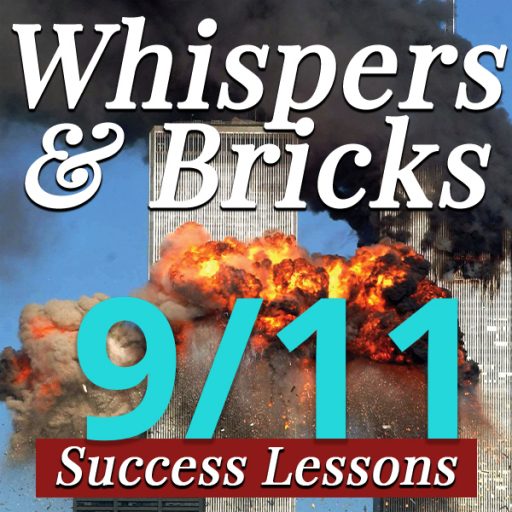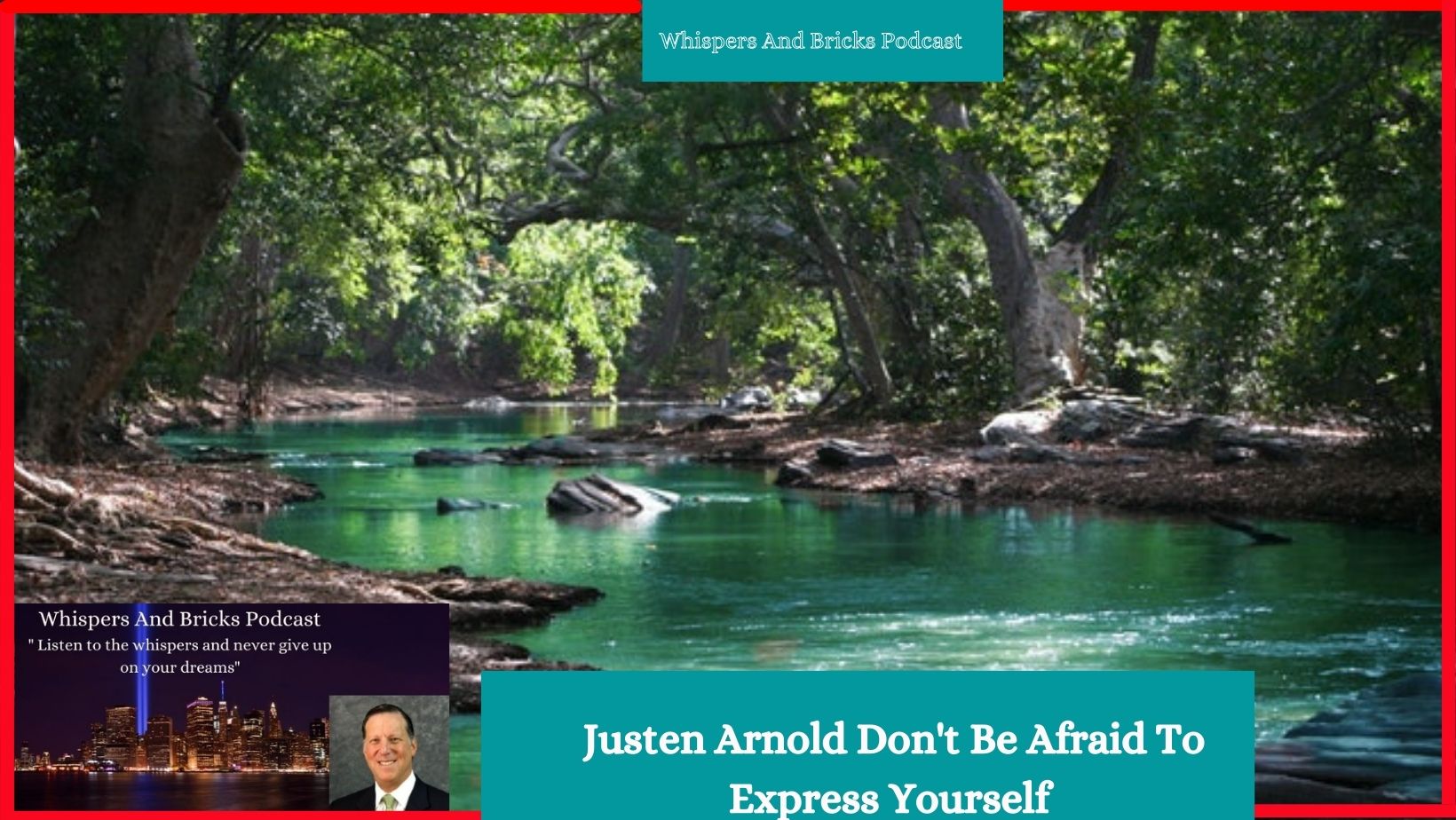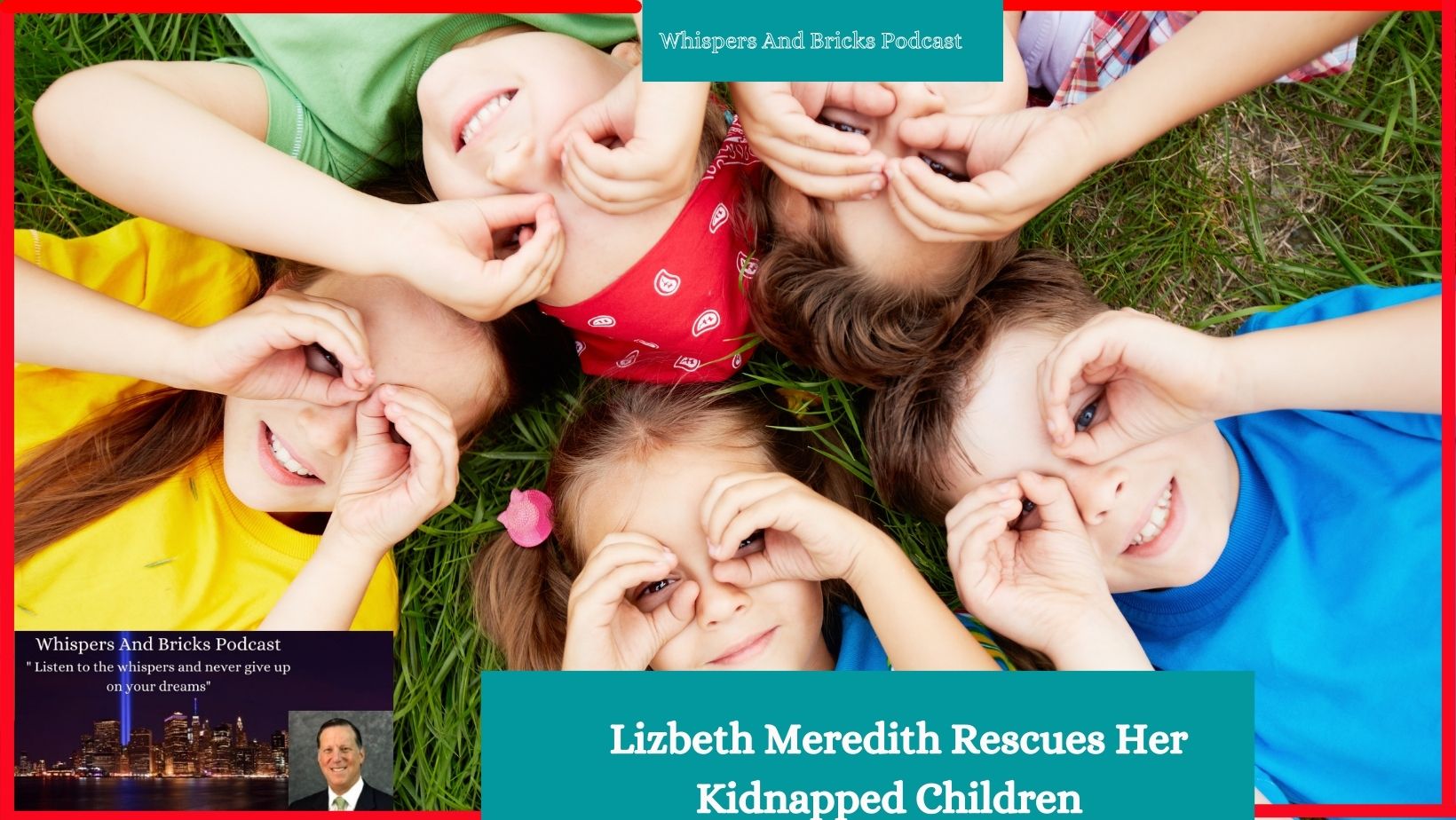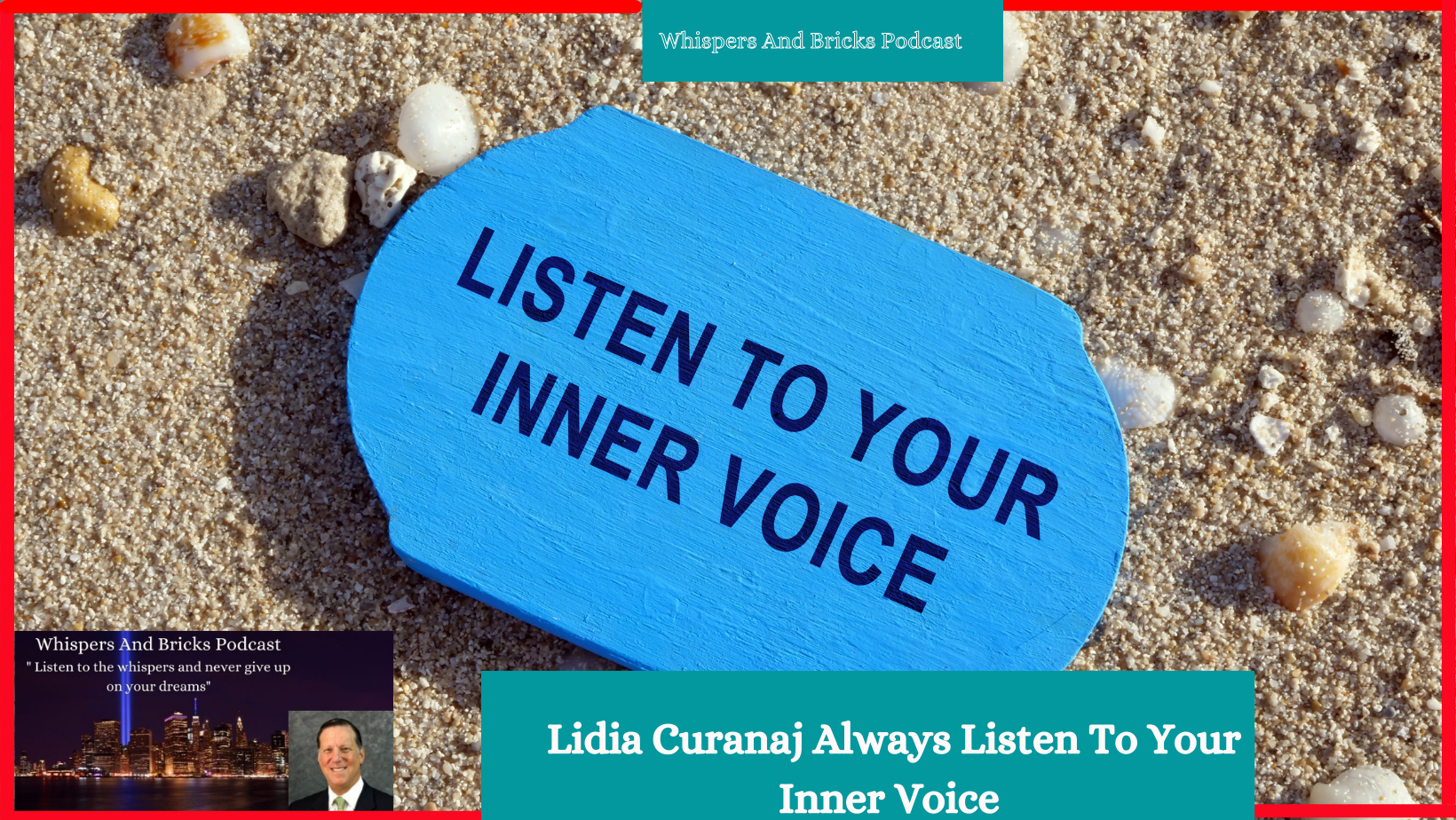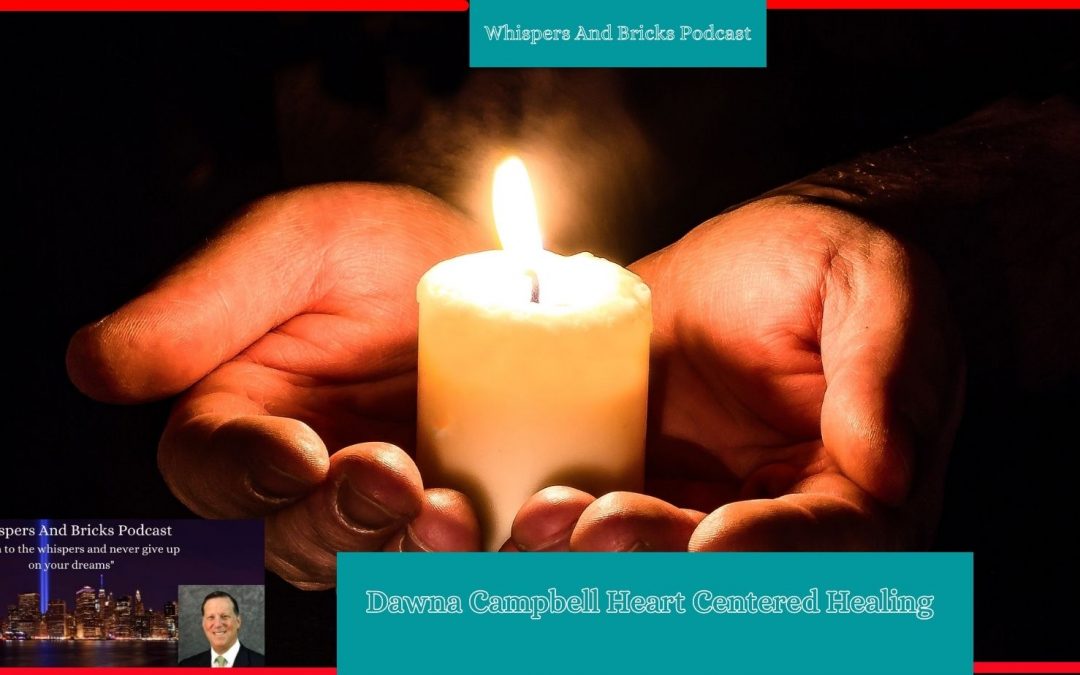
83. Josh Olmos Where There’s A Will There’s A Way
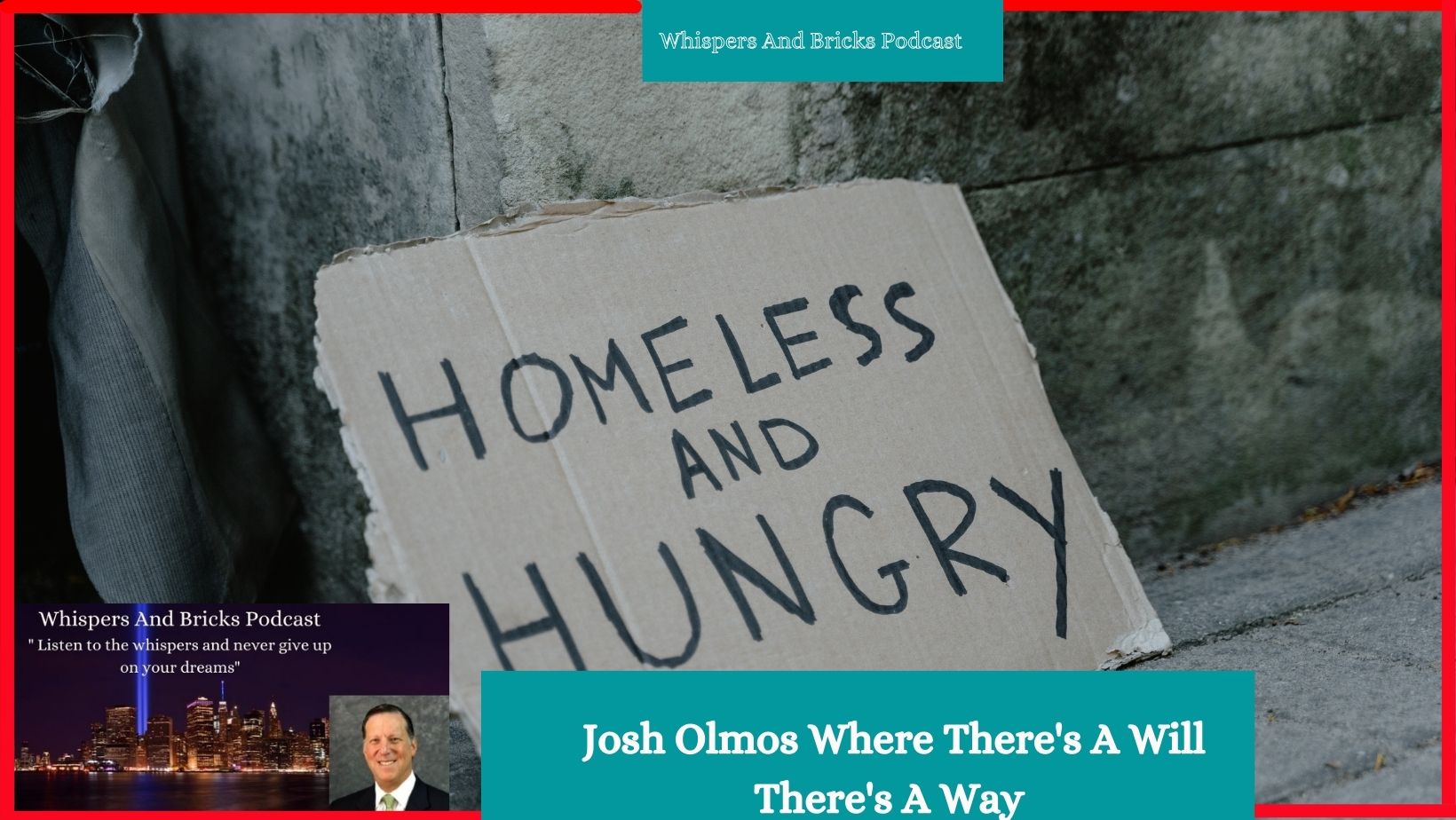
Josh Olmos Where There's A Will There's A Way
Josh Olmos Where There’s A Will There’s A Way
Summary:
Josh Olmos runs a successful marketing business, has a podcast, helps homeless youth, is a loving husband and father of 4. But, life wasn’t always that way. Josh became homeless at the age of 14. He describes what happened and how he eventually found his parents. Josh also tells us about the bricks he faced as a young father and what helped him build the life he wanted. But, most of all, he shares the advice he received that helped him overcome any brick you don’t want to miss this!
Show notes:
https://joshuaolmos.com/
https://www.instagram.com/josholmossr/
hello@joshuaolmos.com
Episode Transcription
Intro Plays
Ari: Welcome to Whispers and Bricks My name is Ari Schonbrun, I’m your host I have with me today, Josh. Almost. Josh is Josh is. Well, let’s put it this way. He was a homeless teen, and he went from homeless teen to thriving entrepreneur. Josh is passionate about helping others be intentional about the life they’re creating. He’s a marketing consultant and owner of day by day solutions, a marketing service business for local service businesses. He’s the founder of faith through love, a nonprofit that helps the homeless and families in need in the northern Nevada area. He is also the host of the Be intentional podcast, Josh loves connecting with others and spending time with his wife and four sons in Reno, Nevada. Please help me welcome Josh. Almost. Josh, how are you?
Josh: I’m doing well. Thank you. Thanks for having me on the show. It’s a pleasure.
Ari: I’m very, very excited to have you. How’s your day going? So far?
Josh: It’s going good. Been very productive morning.
Ari: That’s great. Now you’re in Nevada, correct?
Josh: I am. I’m in Reno, Nevada, in Reno, Nevada.
Ari: That’s wonderful. You like to gamble with the people in Nevada are the only ones that don’t gamble.
Josh: No, we go to the casinos for the food.
Ari: I hear you. I hear you. Okay, so before we begin, I have to ask you your first name, when when you introduce yourself to me was Joshua Joshua. But I quickly learned that’s not your real first name. What is what is the name that your parents gave you? Where you now I know why they call you Josh. Oh, sway. Hmm. That is what language Spanish, it’s Spanish. Does it mean anything?
Josh: So it’s actually just Joshua translated into Spanish. Oh, really? That’s why I That’s why Joshua gets the same name.
Ari: Ah, okay. I had no idea. All right, awesome. Great. Now, as you know, the name of this podcast is whispers and bricks, the whispers of those voices telling us what the right thing to do is, and they represent the good things in life. And the bricks represent the bad things that we go through in life. And let’s be honest, All right, everybody goes through stuff in their lives. Sometimes the brick is bigger, sometimes it’s smaller. Sometimes there are more of them, sometimes there are less of them. But at the end of the day, everybody goes through something. And the idea of this podcast is to try and help people that are going through things that they don’t, that they think they’re the only ones going through them, and I bring on guests that, you know, tell their stories, and people realize that, hey, I’m not the only one going through this. So there are several reasons why I shouldn’t be my guest on the show. After our initial conversation, I knew that there were people in my audience who are going through some of the same things that you had gone through, they’d been hit with brick after brick, much like what you had gone through. And they needed to hear and to know that they could get through the trials and tribulations, the same way that you did, they needed to know that there are whispers out there that could save them. Now in your life, you’ve had many bricks thrown at you to start with, as we learned, you became a homeless person at the ripe old age of 14. What was that all about?
Josh: Well, I mean, it’s one of those things where, you know, it’s really easy to think, you know, be sorry for ourselves because we’re kind of a victim of circumstance because at 14 You know, I didn’t have a lot of say and what was going on around me. So my parents were going through a really bad divorce and weren’t speaking to each other. So one thought I was with the other the other thought I was with the other one, they forgot that I was actually on a class trip came home and everybody was gone. And I had no idea where they went. They both moved out of our region. And and so it took me about eight months to track down my mother and then after that, my father,
Ari: so let me understand something you’re on a class trip. Right? You come home was was the house locked? Or did you have keys Did you able to get in what what was the story? If they
Josh: so again, locked it was locked in I kind of broke into my own house.
Ari: Okay to your own house. Awesome. You still had was there like, you know, gas and electric Did you still have you know, was there?
Josh: We I did. I did. There was gas and electric for a couple of days I left to go find them. We lived in a place in Southern California in Escondido, California called elfin forest. So it was about 30 minutes from town driving. So I went into town and that took me a whole day.
Ari: Okay, so you went into town? And did you? Did you? What did you do about school?
I went, well,
you’re, you’re all alone, right? Did you get a key by the way? To the
house? No, no, no.
So So what did you do? I mean, do you leave the front door open? I mean, I
Josh: left a window cracked, but but it was so far away from from town. I, I stayed there a night. And then came back about a week later, just to double check, but didn’t really stay there kind of figured out on my own. I did go to school. You know, I, I guess you can say I was a little bit proud. Because I didn’t want anyone to know that this had happened. It was kind of embarrassing. So I tried to live as normal and like life was going on. And not anyone not let anyone know that anything was happening as far as long as I could.
Ari: Wow. So like, how did you manage? What did you do? I mean, I’m assuming you didn’t have any money. I had to assume. Right. So what did you eat? Where did you go? I mean, close. Yeah. Think. Think about all the things that a person needs, you know, a child. You know, I look at my 17 year old, you know, and he’s 17. Alright, and he would probably not be able to make it on his own. He doesn’t so what did you do? How did you why did you get food from I mean, if you went to a public school, I’m assuming they served your lunch?
Josh: Yes, we did. I did have lunch and then there was a Carl’s Jr. That I knew that someone worked there and and I traded a little bit of labor, I knew a little bit of how to work with my hands. And, and so I worked a little bit on their car. And they, you know, would pay me in their discount in their employee discount for food, so they would give me some food. And I did that. I did that for a while actually that that first night was the hardest, but you know, if you really think it through, you can trade you can trade labor for a lot of things.
Ari: Tell me Tell me real quick about that first night actually, what did where did you sleep? Where did you What did you do?
Josh: So I went to a park that I knew and and it was hard to sleep I have to admit that first one that was a shell shock and I had been a little bit you know, sheltered as a kid so I didn’t really I didn’t really know what was going on. There was a lot of emotions a lot of like that pity party of like, what did I do so wrong that you know, my parents didn’t love me that they would forget about me all that type of stuff. And that lasted for for you know, variously this eight hours, because it was already dark by the time I kind of came through and and it was really cold. I was in shorts and a T shirt. And I realized, man I need to get it together. I can very very realistically die out here. And so it was cold on the benches because they were there you know metal metal. Yeah, really cold. So I went and found kind of like a jungle gym back then they used to have the old wooden jungle gyms and right underneath them there were like wood chips. Now. I know they’re all phone, but back then there were wood chips. And I didn’t have anything. But it was cold. So I knew that if I if I kind of dug underneath the jungle gym, then the wind would go over me if I went slow enough. So So yeah, just with my bare hands a lot of splinters on my hands. A lot of kids are woodchips and so you dig through that and you kind of get to the plastic and under that. And, and yeah, I dug a hole and slept in there as much as I could. Because obviously every every noise kind of was startling, but slept as much as I could and tried to figure out what in the world to do. It was a weekend so I had a couple of days to figure out how the heck to get you know, to school and all that fun stuff.
Ari: You know, it’s it. It brings me It brings back memories of I mean, I remember you know, I’ve spoken to Holocaust survivors who talked to me about you know, running away into the forest and literally doing the same thing you did digging holes and literally digging their own graves, you know, to sleep in order to you know, to keep themselves sheltered and the like and I mean, I can’t imagine what that first night must have been like digging literally thinking to yourself, I’m digging my own grave. You know, I hope I wake up in the morning, that type of thing that’s let me ask you something when we When you were a kid before all this was going on, I mean, you must have had like hopes and dreams like any little kid. Do you remember? Do you remember what they were? If any of them? What What were your hopes and dreams, dreams? And when you were a kid?
Josh: Oh, yeah. When I mean, when I was a kid, I wanted to become a police officer, I wanted to become a cop, because it was, you know, I worked a lot of watched a lot of action movies. And when I was a kid at Bruce Lee was really popular. So you know, that that was kind of the thing. And I came from really humble beginnings, not just that, but before to my dad, first generation, my dad came from Vedat cruise, and became a citizen and opened up a shop, but we, you know, we were not wealthy by any means and, and on the poor scale. So, you know, being able to buy a house and being able to go to college like that was, those were like, big accomplishments for my family at the time, so that I wanted to become a cop. And to me that was like successful, you know, career and buy a house one day and go to college. That was those were my dreams.
Ari: Wow. Wow. So I it’s interesting. You mentioned your your parents came from where your father came from, where he come from? Veracruz, Mexico, he came from Mexico. And but I mean, I’m assuming that he came in legally and he went through all the process. Yeah, went through the process. You know, you must be very, you have to be proud of your dad for that situation. I know what was going on what’s going on today? You know, I don’t want to get political right now. But really, you know, what’s going on with the, at the borders, and like, it’s just a terrible situation. So it’s always nice to hear, you know, about people that have done it legally, and have really made made something of themselves in this country, because let’s be real America is the land of the free and, you know, it’s the land of opportunity, if you just, you know, take the bull by the horns, and I think you, you represent that as well. Because, you know, obviously, you’re doing okay, now, right? You were literally as as your bio said, you went from a homeless to an entrepreneur. And that’s great. Let me ask you this. Was there ever a point in time in your life when you just sank so low? That you said, You know what, I can’t do this anymore. It’s too hard. I’m just gonna give up on my dreams? And, and if that’s the case, how did you overcome? And when did you overcome? When what When did you get out of it?
Josh: Oh, very much. So, just backtracking a little bit? Before I answer that question that, you know, my dad was the one who really instilled the American dream in us and, and to keep fighting and to keep going. I mean, he was so so proud to come to come over and become a citizen, this was the land of opportunity. And I feel like sometimes people who immigrated here, or, like me, who have parents who did it, you know, we really hold on to that American dream, we really hold on to that, you know, the, the, what, what a blessing it is to be an American. And so, you know, I know a lot of there’s a lot of stuff going on, and definitely not getting political and stuff, but but we were really proud. I mean, I know we’re a Mexican family, we stuck to our culture, but we were really, really proud to begin Americans and, and it is a blessing, because I don’t know that things would turn out the way that they did. And I would have had the opportunity that I had, if if my dad would have stayed over there. And this would have happened over there. And so definitely agree with that, that we are, you know, America is a great place to live and grow up in. And so I, you know, me being young, I kind of had to figure things out on my own. And I did a lot of things, some things that worked really well some things that worked that didn’t go really well, to be honest with you, the part that was really, really hard for me, was I had, I had my boys I had two boys, when I was young, when I was really young when I was you know, 18 and 20. And, and, you know, becoming a parent is a whole different ballgame. And we had just got, you know, my wife and I, we had just gotten married, we had just moved into an apartment. And I was working three jobs, you know, I had gone from had burned all the money from from selling the first business that I started just a brick and mortar business, gone through all that to get the apartment to get the car to kind of get us up and going and I thought I would just roll into the next you know, the next business venture. And that didn’t work out and then now I had three mouths to feed and, uh, you know, mortgage and a car payment and, and, you know, before it was just looking out for myself now I had other people. So literally working three jobs. It was really hard. And there definitely became a point where I was like, I can’t do this. It’s too much. It’s too much pressure. Things aren’t going the way I thought they were gonna go. I have no idea what I’m doing. Because that realization kicked in, you know, you’re, you’re a parent, you’re working, you’re doing all this stuff and there’s that you know Work life balance, right? It’s like, I’m not there for the kids, but the kids need to eat, I need to go to work. And it was like, I’m not being a good parent. So all these things right, run through your head.
Ari: Did you wind up with? Were you one of those that like you had too much month at the end of your money?
Josh: Oh, definitely. Definitely. Yeah. And, and also, I mean, I grew up on the streets. So, you know, later, what I found out was a little bit of PTSD, I, I overreacted to a lot of things, because, to me, everything was life and death. Because I grew up. If we didn’t find something to eat today, if I didn’t do this, if I didn’t do that, it really affected my day to day. And so trying to adapt from me, controlling everything, and really having that, you know, fighting for every single step that I took to going into, you know, into society. And it’s a totally different things. I had no idea, no idea about politics in the workplace, or how the hierarchy worked, or any of that type of stuff. And so that stuff was really hard. There was a lot of stuff I was learning at once. A lot of things I didn’t understand. And and it was really easy to get depressed during those times.
Ari: Do you think so? was? Was your wife supportive of you? I mean, I’m assuming Yes. I mean, she married you and you had kids together? I’m assuming she was she was supportive of you. Was she? Did she work at all? Or? Or, you know, was she just taking care of the kids and so that you can go out and do what you needed to do.
Josh: So for the most part, she stayed at home. But yeah, she was definitely supportive, but it was the same thing. She was handling two kids, and, and we were on her own. And, you know, there’s a whole story with that, too. But you know, everyone and I get it, everyone thought that we shouldn’t have had kids or been together. So we were on our own. And so that was hard to you know, she she came from a little bit of a higher class with your family and stuff. And then she was on her own trying to figure it out with me who had no idea what it was doing with two little kids. And so it was definitely a shock for all of our systems. Right.
Ari: That kind of that kind of bring begs the question. When you got married, I mean, you just mentioned that she was from a little bit better. You know, little wealthier homeowner was called wealthy but a little wealthier home than you certainly. What was their parents? What were their thoughts? I mean, did they condone the marriage? Did they were they against it? Were they you know, did they cut her off? Or did they say no, we’ll help you what? What was going on there?
Josh: Yeah, they definitely didn’t condone it. And yeah, it definitely wasn’t cut off thing didn’t attend the wedding or any of that type of stuff. So we were we were definitely on our own.
Ari: Wow. Wow. That’s amazing. So you had two kids? So but at some point in time, you you obviously had turned this around? Tell me about that. What did you do? Like, what are you doing now? I mean, you know, how did you how did you manage?
Josh: You know, I think the biggest thing was realizing that I was in control of my time. You know, my dad used to tell me something where there’s a will there’s a way. And
Ari: my dad used to say to me, my dad, you sent me when there’s a will there are relatives? That’s true, too. And yeah, when there’s a will there’s a way,
Josh: there’s a way, so. So really, it was it was where we intentionally came from, was the fact of if I didn’t want to do this for the rest of my life, because it was going to break me to do to run this heart. What was I going to do today to set up my future. And so taking a step back, taking those hits that came with it, and being purposeful about each step I took that, you know, and then knowing that if I worked hard enough, I could accomplish it. That’s really what changed everything. Because before everything was reactionary, it was just like this is do this has to happen. And so I was just reacting to everything that came my way. When I stopped and actually kind of, you know, planned out where I wanted to go what I wanted to do and was intentional with each step that changed everything.
Ari: Wow. It’s amazing. So I think you also mentioned to me something about a ministry.
Josh: Yeah, I was I was an executive director for for a ministry, a traveling ministry that helped inner city kids. And I did that for 10 years that I started from the very bottom as volunteering because I wanted to make a difference. I started from volunteering, got hired on to handle you know, some of the books and some of the outreaches and then moved up to director and then moved up to Executive Director and Director of Operations and all that on stuff. So that taught me a lot. And that actually is, is where I realized I wanted to go into marketing because I realized how many people are doing amazing things, but they’re the best kept secret, nobody knows about them because they don’t, they’re so busy mastering their craft and doing so well at doing what they do for people that they don’t have time to go out and actually tell people what they do and get more clients and so that that’s actually what what propelled me into marketing.
Ari: That’s, that’s, that’s awesome. I mean, it’s, you know, it must have been very, very satisfying for you, in that environment, knowing that, you know, knowing the environment that you came from, and saying to yourself, you know, what, I know, I know what happened to me, but I’m not going to let it if it’s, you know, if it’s up to me, I’m not going to let it to happen to anybody else, you know, I’m going to do whatever it takes in order to make sure that, you know, people have a decent upbringing, a decent life, etc. So, you know, my hat’s off to you, you know, doing that kind of thing, especially for 10 years, that’s a long time. You know, that’s a long time in that kind of a situation. So my hat’s off to you, you should be really, really proud of yourself.
Josh: Thank you. Thank you appreciate that. And, you know, so I did go into the the Ministry for 10 years. And that was amazing. But also, I mean, you know, sitting down with my wife, and going over what we wanted to do, she was she was in the Air Force, she was in the military for six of those years. And wow, that, you know, her, you know, going off for a little bit. You know, he has an eight month bootcamp. So it’s just me and my boys and doing that stuff. So as being on the same page, and, and really going, Okay, we want to be intentional, we don’t want this lifestyle, we need it, we moved out of out of our hometown, because we wanted to start over. And it was really hard to get away from old habits if you’re surrounded by the same things over and over again. And that was hard. And so doing it together that that was a big deal. So you know, credit to where credit’s due to her being in the Air Force, really, you know, help, especially with the education, especially with insurance and stuff like that. So it was it was a big deal.
Ari:Wow. Wow, that is that’s amazing. And so you were talking about early on? Yeah, two kids. I understand. Now you have four children. Now I have four. Yes, sir. Correct. And how is that working out? Great.
Josh: I mean, it’s wonderful. My My oldest is just graduated high school, and, you know, 18, and then my youngest is six months. So
six months. Wow. Wow, that’s a spread at much. So yes, sir. Yeah. How much you how old? You are the kids. So you have 18? Yeah, s
I have 1816. And then six years old, and then Finland’s
Ari: and then six months. Okay, so you got that 10 year gap between numbers two and three? Yes. All right. That’s not bad. I have eight and a half year gap between four and five. By me, but that’s not the whole story. And this is about you not about me. So we’re not going to go there. Anyway, that’s amazing. Do you have siblings?
Josh: I do. My sister who is the oldest 10 years older than me. She has cerebral palsy.
Ari: So who’s taking care of her? My mom.
Josh: My mom is taking care of her. Yeah. So okay, great. Yeah, yeah. And then you have a guy that I have a brother. He’s six years older than me. And he’s in Orange County right now. And he runs a car detailing business. So
Ari: car detailing. Yeah, I could be a customer if I was in California, but I’m in New York, but trust me, my car needs detail. Wow, that’s great. That’s, that’s really great. So it really sounds like you haven’t put together you figured it out. I might again, my hat’s off to you. I just, you know, I think if it were me, I would be dead by now. So, but really my hat’s off to you. So before we go. Is there anything that you would share with my audience words of wisdom words of advice you can give to my audience? Yeah,
Josh: I mean, I would definitely just harken back to two things. One is apparently what my dad said was true, where there’s a will there’s a way you know, you have to be willing to sacrifice something because everything comes at a cost. And so sacrifice something is for what you really want. And then two is be intentional about what you’re doing this life has a really, really easy way of getting you caught up and just reacting and just living day by day and everyday passes by so fast. So if you don’t stop and make intentional steps, you’ll end up somewhere where you didn’t want to be
Ari: great. Definitely words of wisdom. One more question. If you had to point to an individual that had a you know, huge influence on your life, who would that be?
Josh: But it was my Dad, my dad definitely had the biggest influence not only by example of, you know, him coming over, but also when I found him and you know, and told him what happened, he broke down and he apologized and, and it actually got him and my mom talking, they didn’t get back together or anything, but start talking and start doing that. Because the way he responded to everything was amazing. You know, he was my best friend before he passed away in 2010. But we had such a great relationship, and he was my best friend. And he really showed me from, you know, from the very beginning to the end, you know, how a man should be and what what we can do when we get over ourselves and try to do what’s best.
Ari: Wow, you know, you’re, to a degree, you’re doing God’s work. That’s what I feel. If people want to get a hold of you, what’s the best way for them to do that email, you have a website, you know, if they want to, if they want to talk to you, because they need help, or they just want to schmooze, or they just, you know, want to say hello, and my hat’s off to you, you know, how would they do that?
Josh: So all of the above, I have a website, Josh, called most Sr, because my son is also Joshua levels. So JOSHOLMOS s r.com. There’s a chat there that you can just click on it. And you know, it goes straight to my email. So I’ll contact you within 24 hours, you can email me directly, Joshua, hello at Joshua Alan watts.com. Or you can find me on Instagram and DM me if that’s easier for you, Josh, almost Sr. I love to connect, I would love to chat. And I’m always here to help.
Ari: That’s so great. So my yada if you’re there my audience that I want to talk to, if you know if Josh’s life resonates with you, and it’s you know, and you might be something you might be going through some of the things that he went through. He’s the type of guy who will be more than happy to talk to you talk you through it, give you some words of advice, give you some inspiration. He’s just that type of guy. He is the type of person that I think we need more of in this world. You know, we’re in a in a in a world that is a little bit, you know, topsy turvy upside down a little scary. But with people like Josh almost in the world. We’re going to get through this and we’re going to we’re going to do great, Josh, thanks so much for sharing your story with my audience. I’m sure that you’ve touched the hearts and lives of many people, my audience, good luck, go. Good luck going forward. Send my best to your wife and of course to your children, and keep doing what you’re doing. Thanks so much. You been listening to his prison bricks and I’m your host Gary Shermer. Remember, if you feel like you’re stuck in the mud, like you’re spinning your wheels, wasting time, your career, your business your life. If you know you’re not enjoying all the success, satisfaction significance that you desire, then it’s time for you to book a call with me at call with ari.com Check out my whispers in bricks Academy coaching and until next time, listen to the whispers avoid the bricks and never ever give up on your dreams. Bye for now.
